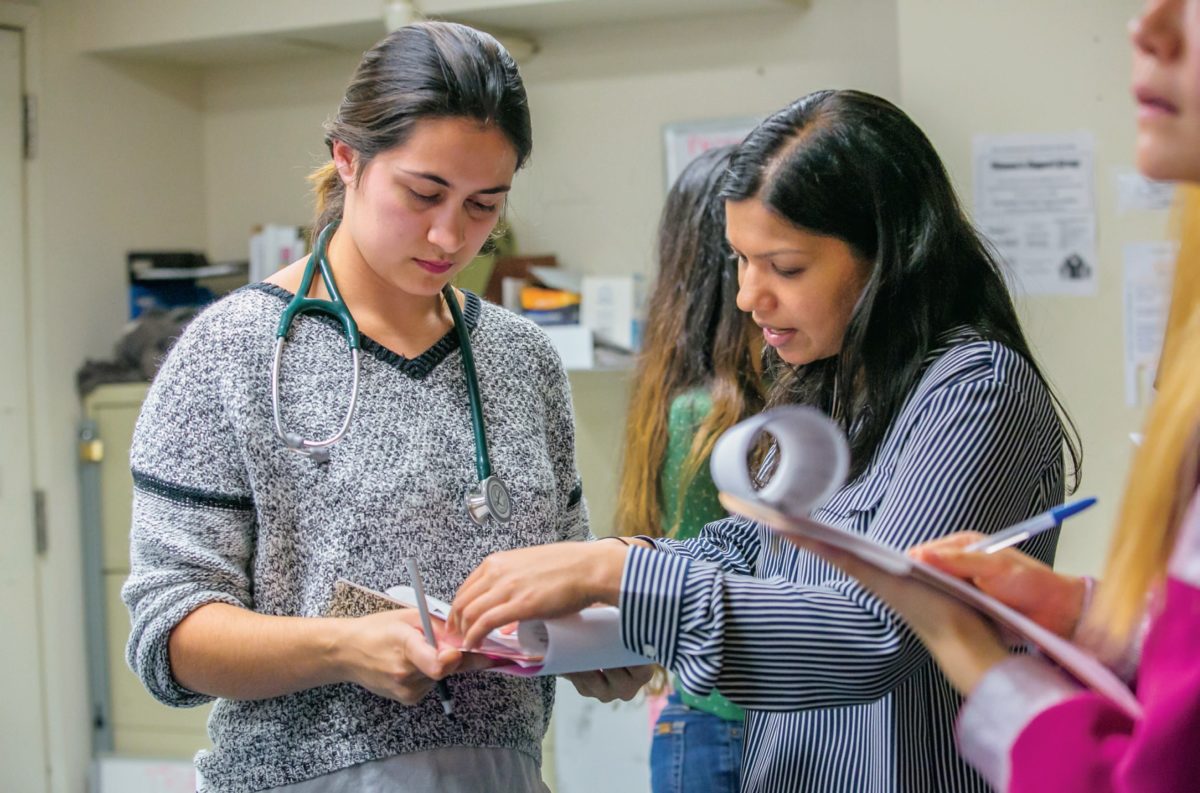Help is Needed to Shift to Telehealth
People without secure housing represent one of society’s most vulnerable populations. While the overall ocular health status and needs of the homeless are not fully understood, poor visual acuity has been correlated with reduced well-being and could pose cascading health implications. (Photo caption: Pre-COVID-19, Neeti Parikh, MD, (right) coordinates patient information with volunteer Sarah Menchaca.)

Thanks to The California Endowment and That Man May See, UCSF Ophthalmology opened a monthly shelter clinic in 2017. With a volunteer staff of medical students and residents overseen by UCSF ophthalmology faculty, the program serves patients at San Francisco’s Multi-Service Center South and Division Circle Navigation Center homeless shelters.
Services range from ophthalmologic screening exams and follow-up care to free eyeglasses (through Project Homeless Connect).
“Unfortunately, the pandemic had a tremendous impact on clinic operations” said Alejandra de Alba Campomanes, MD, MPH, UCSF faculty lead for the clinic. “While our team has not been able to care for patients in-person since March, we are working with the San Francisco Department of Public Health nurses at the homeless shelters to begin telemedicine visits and streamline a referral process for shelter residents.”
To be able to provide needed telehealth services, the clinic is seeking a specialized camera designed to obtain detailed images of the eyes of patients with possible diabetic retinopathy, while also screening for other sight-threatening conditions. Funds are also needed for UCSF staff to develop a monitoring and training program. This program would provide basic training in eye examination for the public health nurses that have in-person access to this high-risk population. These efforts will help identify patients who warrant referral for advanced ophthalmologic care.
Help UCSF Ophthalmology shift to telehealth services to resume serving these patients: www.thatmanmaysee.org/donate

